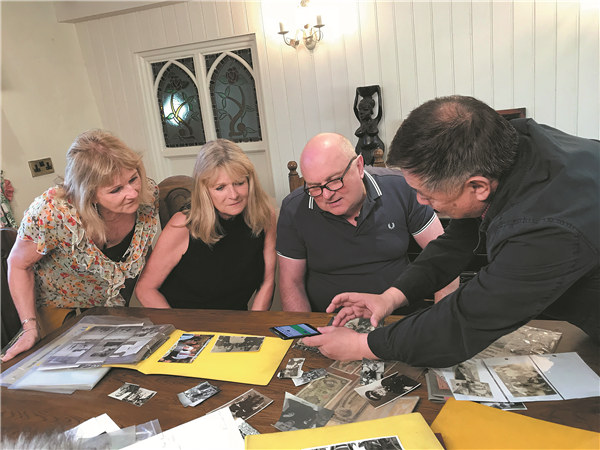

During the journey, Fang learned of 94-year-old Lin Agen, the sole surviving fisherman to have participated in the rescue, and of a 98-year-old British soldier, Dennis Morley, who survived the ordeal. "It felt like a race against time. We had to document their stories before it was too late," Fang says.
Initially, Fang envisioned a traditional documentary with interviews and historical footage, but the power of the story and the emotional toll it took on the team pushed him to press for theatrical release. By 2018, he and his crew were traveling to the United Kingdom, Hong Kong, and other locations to interview survivors and historians, including Tony Banham, the first scholar to research the tragedy.
By April 2018, the team had conducted multiple interviews and the emotional weight of the stories was overwhelming. "Every day, we found ourselves in tears. These were stories that moved us to our core," Fang says.
The scale of the tragedy — 1,816 British POWs — led Fang to launch a search for more survivors and their families. He placed ads in British newspapers like The Sunday Times, The Telegraph, and The Guardian. "People thought I was crazy — 'Who even reads newspapers anymore?' they said. But I knew that the elderly, like myself, still do," Fang says. The campaign was a success, leading to BBC Radio 4 inviting him on a show, which in turn connected him with 380 POW families.
And during a show of BBC World News, the host asked Fang, "What made a group of Chinese people come all the way to the UK and launch a massive advertising campaign? What happened?"
Fang's reply was: "It's very simple. Did you know that 77 years ago, a major event took place right on our doorstep? Your soldiers, the same age as my son, were brutally attacked and massacred by the Japanese army, and over 1,800 of them went through a terrifying ordeal in Zhoushan. It was the kindhearted fishermen of China, our ancestors, who risked their lives under heavy gunfire to save them. Only then did the Japanese cease fire. In total, the fishermen of Dongji Island saved 384 Allied POWs. So why did a small group of Chinese people come here to do this? The reason is very simple: It happened in China, and the Chinese were the rescuers and eyewitnesses."
The team was surprised to discover that one of the rescued soldiers, William Beningfield, was still alive and living in Canada.